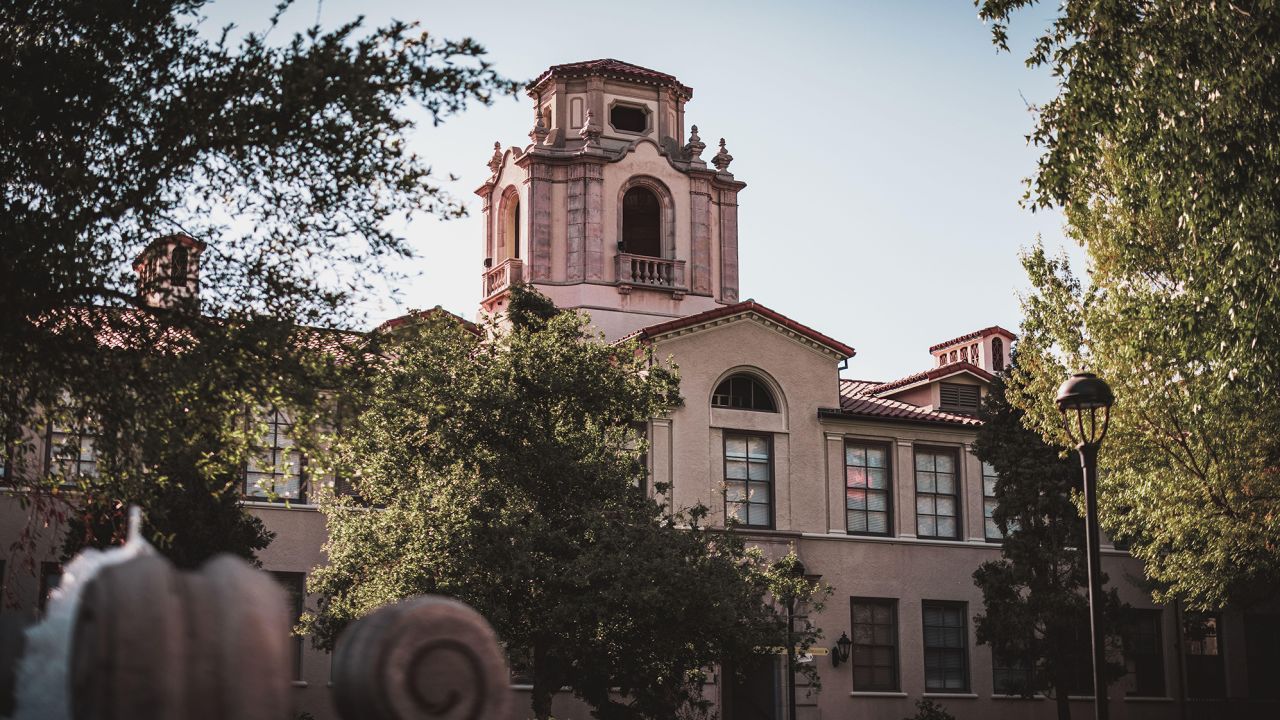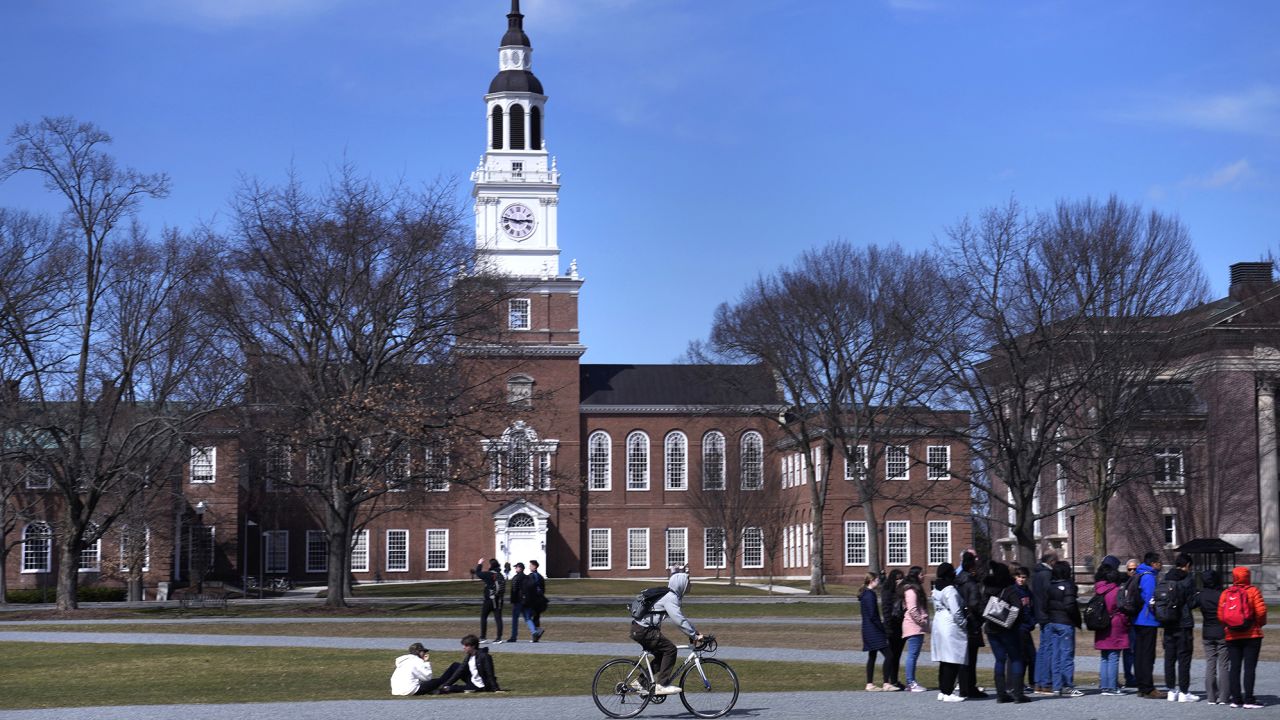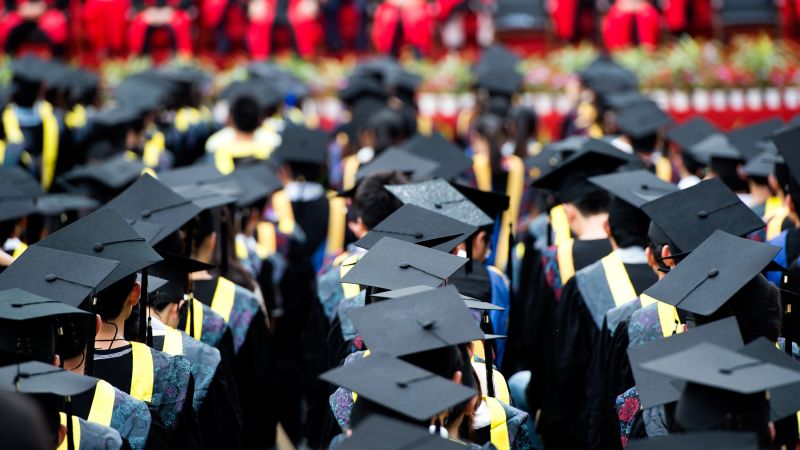Legacy college admission is an advantage given at birth, in which the children of a school’s alumni receive special consideration in the college admissions rat race. But after the US Supreme Court overturned race-based admissions over the summer, attention toward this already criticized practice intensified.
While many students from minority or low-income backgrounds are likely the first in their families to attend college, legacy students are mostly White, according to the American Civil Liberties Union.
Since the Supreme Court’s decision on race-based admissions, Wesleyan University and the University of Minnesota dropped legacy admissions. Other schools, such as Johns Hopkins University and Pomona College, made the decision even earlier.
“It was clear we should get rid of it,” Wesleyan President Michael Roth said on “CNN This Morning” in July. “The Supreme Court’s decision saying we shouldn’t consider the groups with which students are identified — racial groups — made it even more clear to me that it was indefensible to give preference to the children of alumni.”
A 2022 report from nonprofit think tank Education Reform Now found that colleges were turning away from legacy admissions. Eighty-nine percent of college admissions directors did not support the use of legacy admits, and three-quarters of public colleges and universities didn’t even provide a legacy preference.
The American public also isn’t in favor of the practice. The Pew Research Center found 75% of respondents to a 2022 poll did not support legacy admissions, even before the Supreme Court’s affirmative action decision.
But children of alumni maintained a significant advantage at the schools that upheld the practice — those happen to be America’s most elite colleges, the very group of schools that were targeted in the Supreme Court case overturning affirmative action.
And though they only represent a sliver of college graduates, the alumni of elite schools go on to hold some of the most influential positions in society.
Look at Harvard University. Let’s say there are two students with the highest academic qualifications. One student is the child of an alumnus, while the other comes from a household that makes below $60,000. The legacy applicant is twice as likely to be admitted into the university, EFN found.
Harvard did not respond to a request for comment from CNN.
Joan Casey, president of Massachusetts-based college admissions consulting firm Educational Advocates, said many Harvard legacies have hired the firm’s service and tend to fare better than other applicants.
“Sometimes we’ve seen students get in that are good students, but they perhaps are not as strong as some of our other applicants who don’t have that legacy connection,” Casey said. “In that admission process, that legacy extra boost really can make a difference.”
Some colleges say that legacy admissions play a financial role in keeping donors engaged. That money is then passed down to students as financial aid.
“That financial support is essential to Harvard’s position as a leading institution of higher learning; indeed, it helps make the financial aid policies possible that help the diversity and excellence of the College’s student body,” a 2018 report of Harvard’s committee to study race-neutral alternatives said, going on to say removing any consideration of legacy “would diminish this vital sense of engagement and support.”
There are mainly three places where colleges receive their money, Pomona College President Gabrielle Starr told CNN: Tuition, philanthropy and state funding for public colleges.

Pomona College, a private liberal arts college in California, does not factor in legacy or donor status into its admissions decisions.
“Our endowment contributes over 50% of what it costs to educate a single student in a year,” Starr said. “And that all has come from philanthropy and the vast majority of it from alumni.”
Pomona eliminated legacy admission consideration before Starr’s tenure.
“It was part of an overall effort to ‘walk the walk’ on equal opportunity for students from whatever their backgrounds were,” Starr said.
The Massachusetts Institute of Technology also suggested it had no issues with fundraising from alumni despite not engaging in legacy admissions.
“And I can tell you, from having sat on countless committees, that we simply don’t care if your parents (or aunt, or grandfather, or third cousin) went to MIT,” Chris Peterson, an MIT admissions officer, wrote in 2012.
Pomona also hasn’t noticed a change in donations since removing legacy preferences, Starr said.
“For every person who may be disappointed that legacy status isn’t considered there are other people who are really proud that we don’t consider legacies,” Starr said.
Colleges say that outside of the financial benefit of legacy admissions, the practice builds traditions and camaraderie.
“Dartmouth has a remarkable alumni body, in terms of who its alumni are, what they do and their indelible connection to this campus,” Dartmouth’s dean of admissions and financial aid, Lee Coffin, said to the school’s alumni magazine in 2017. “So legacy candidates are an important constituency in each applicant pool and in the way we think about the class we are shaping.”
The dean added that children of alumni made up about 12% to 13% of each entering class.

“A legacy connection will continue to be one factor among dozens that Dartmouth considers when evaluating applicants,” Dartmouth said in a statement. “Dartmouth is grateful to have an increasingly diverse alumni body that makes for an increasingly diverse group of legacy applicants.”
Elite schools don’t just view themselves as admitting bright students — they are admitting future leaders.
Casey said that the attitude that legacy candidates fit in with the school’s culture better “perpetuates admitting these people you feel comfortable with from generations and generations of families that are affluent.”
Since colleges receive tax benefits and donations are tax exempt, some advocates argue that colleges need to act in the public interest or risk losing those benefits.
“I don’t know if there will come a time where (colleges could) feel their tax exempt status could be threatened because people feel like they need their practices need to be more equitable,” Casey said.
In July, the US Department of Education began a civil rights investigation into whether Harvard University discriminates in its admissions process by giving preferential treatment to children of wealthy donors and alumni.
And even if legacy admissions were eliminated, many of those same students already come from a privileged background. “Whether they go to Harvard or not, they’re already on a trajectory to be successful because of personal wealth and other factors,” Casey said.
Casey added that getting rid of legacy admissions won’t change the compositions of the nation’s most elite colleges overnight.
Starr said there are still multiple barriers to higher education for students from underprivileged backgrounds.
“We made a lot of made a lot of decisions collectively to try and promote equal access. And so this was one among others,” Starr said.
Read the full article here










Leave a Reply